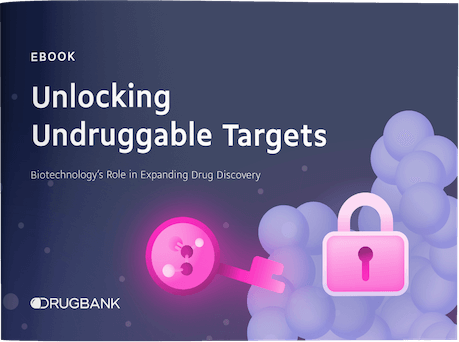Explore a selection of our essential drug information below, or:
Identification
- Summary
Evolocumab is a PCSK9 (proprotein convertase subtilisin kexin type 9) inhibitor antibody used as an adjunct to LDL cholesterol reducing therapies, aiding in the prevention of cardiovascular events and cardiovascular revascularization procedures.
- Brand Names
- Repatha
- Generic Name
- Evolocumab
- DrugBank Accession Number
- DB09303
- Background
Evolocumab is a monoclonal antibody designed for the treatment of hyperlipidemia by Amgen. It is a subcutaneous injection approved by the FDA for individuals on maximum statin therapy who still require additional LDL-cholesterol lowering. It is approved for both homozygous and heterozygous familial cholesterolemia as an adjunct to other first-line therapies. Evolocumab is a human IgG2 monoclonal antibody that targets the proprotein convertase subtilisin/kexin type 9 (PCSK9). PCSK9 is a protein that targets LDL receptors for degradation, therefore reducing the liver's ability to remove LDL-cholesterol (LDL-C), or "bad" cholesterol, from the blood. Evolocumab is designed to bind to PCSK9 and inhibit PCSK9 from binding to LDL receptors on the liver surface, resulting in more LDL receptors on the surface of the liver to remove LDL-C from the blood. Evolocumab is the second PCSK9 inhibitor on the market, first being alirocumab.
- Type
- Biotech
- Groups
- Approved
- Biologic Classification
- Protein Based Therapies
Monoclonal antibody (mAb) - Protein Structure

- Protein Chemical Formula
- C6242H9648N1668O1996S56
- Protein Average Weight
- 141800.0 Da
- Sequences
- Not Available
- Synonyms
- Evolocumab
- External IDs
- AMG-145
Pharmacology
- Indication
Evolocumab is indicated in adult patients with established cardiovascular disease to reduce the risk of myocardial infarction, stroke, and coronary revascularization.3 It is also indicated as an adjunct to diet, alone or in combination with other hypolipidemic treatments, in adults with primary hyperlipidemia (and in pediatric patients ≥10 years old with heterozygous familial hypercholesterolemia) to reduce LDL-C.3 In addition, it is indicated adjunctly to other hypolipidemic treatments in patients ≥10 years old with homozygous familiar hypercholesterolemia to reduce LDL-C.3
 Reduce drug development failure ratesBuild, train, & validate machine-learning modelswith evidence-based and structured datasets.Build, train, & validate predictive machine-learning models with structured datasets.
Reduce drug development failure ratesBuild, train, & validate machine-learning modelswith evidence-based and structured datasets.Build, train, & validate predictive machine-learning models with structured datasets.- Associated Conditions
Indication Type Indication Combined Product Details Approval Level Age Group Patient Characteristics Dose Form Prevention of Cerebrovascular accident •••••••••••• ••••• ••••••••• Prevention of Coronary revascularization •••••••••••• ••••• ••••••••• Prevention of Myocardial infarction •••••••••••• ••••• ••••••••• Adjunct therapy in management of Increases in serum total low-density lipoprotein (ldl) •••••••••••• ••••••••• Used as adjunct in combination to manage Increases in serum total low-density lipoprotein (ldl) •••••••••••• ••••••••• - Contraindications & Blackbox Warnings
 Prevent Adverse Drug Events TodayTap into our Clinical API for life-saving information on contraindications & blackbox warnings, population restrictions, harmful risks, & more.Avoid life-threatening adverse drug events with our Clinical API
Prevent Adverse Drug Events TodayTap into our Clinical API for life-saving information on contraindications & blackbox warnings, population restrictions, harmful risks, & more.Avoid life-threatening adverse drug events with our Clinical API- Pharmacodynamics
Not Available
- Mechanism of action
Evolocumab is a human IgG monoclonal antibody which targets PCSK9 (proprotein convertase subtilisin/kexin type 9). PCSK9 is a serine protease produced by the liver which binds LDL receptors and creates a complex to be targeted for lysosomal degradation. LDL receptors typically bind LDL-cholesterol ("bad" cholesterol) for cellular reuptake, therefore the formation of these complexes with PCSK9 inhibits LDL receptor recycling to the cell surface, resulting in decreased cellular reuptake of LDL-C and increased levels of free LDL-C in the plasma. Individuals with familial hypercholesterolemia often may have "gain of function" mutations in the PCSK9 molecules in their body, resulting in increased LDL-C plasma levels and a consequent cardiovascular risk. Evolocumab is able to bind both the normal PCSK9 and the "gain of function" mutant, D374Y. The exact mechanism of the binding has not been published, however the precursor molecule, mAb1, is indicative of the interaction. The mAb1 molecule binds on the catalytic site of PCSK9 next to the binding site for the LDL receptor and creates hydrogen bonds and hydrophobic interactions, resulting in the steric inhibition of binding between PCSK9 and the LDL receptor. Because the formation of complexes between LDL receptor and PCSK9 are prevented, the internalized LDL receptors are less likely to be degrated by lysosomes and may recycle to the surface of the cell to serve their function of removing LDL from the blood.
Target Actions Organism AProprotein convertase subtilisin/kexin type 9 inhibitorHumans - Absorption
Total bioavailability from subcutaneous injection was 82% in cynomolgus monkeys.
- Volume of distribution
Not Available
- Protein binding
Not Available
- Metabolism
- Not Available
- Route of elimination
Not Available
- Half-life
Not Available
- Clearance
Evolocumab showed non-linear, dose-dependent clearance in healthy volunteers; clearance decreased with increasing dose.
- Adverse Effects
 Improve decision support & research outcomesWith structured adverse effects data, including: blackbox warnings, adverse reactions, warning & precautions, & incidence rates. View sample adverse effects data in our new Data Library!Improve decision support & research outcomes with our structured adverse effects data.
Improve decision support & research outcomesWith structured adverse effects data, including: blackbox warnings, adverse reactions, warning & precautions, & incidence rates. View sample adverse effects data in our new Data Library!Improve decision support & research outcomes with our structured adverse effects data.- Toxicity
Not Available
- Pathways
- Not Available
- Pharmacogenomic Effects/ADRs
- Not Available
Interactions
- Drug Interactions
- This information should not be interpreted without the help of a healthcare provider. If you believe you are experiencing an interaction, contact a healthcare provider immediately. The absence of an interaction does not necessarily mean no interactions exist.
Drug Interaction Integrate drug-drug
interactions in your softwareAbciximab The risk or severity of adverse effects can be increased when Abciximab is combined with Evolocumab. Adalimumab The risk or severity of adverse effects can be increased when Adalimumab is combined with Evolocumab. Aducanumab The risk or severity of adverse effects can be increased when Evolocumab is combined with Aducanumab. Alemtuzumab The risk or severity of adverse effects can be increased when Alemtuzumab is combined with Evolocumab. Alirocumab The risk or severity of adverse effects can be increased when Alirocumab is combined with Evolocumab. - Food Interactions
- Not Available
Products
 Drug product information from 10+ global regionsOur datasets provide approved product information including:dosage, form, labeller, route of administration, and marketing period.Access drug product information from over 10 global regions.
Drug product information from 10+ global regionsOur datasets provide approved product information including:dosage, form, labeller, route of administration, and marketing period.Access drug product information from over 10 global regions.- Brand Name Prescription Products
Name Dosage Strength Route Labeller Marketing Start Marketing End Region Image Repatha Injection, solution 140 mg/1mL Subcutaneous Amgen Europe B.V. 2015-08-31 Not applicable US Repatha Injection, solution 140 mg Subcutaneous Amgen Europe B.V. 2016-09-08 Not applicable EU Repatha Injection, solution 140 mg Subcutaneous Amgen Europe B.V. 2016-09-08 Not applicable EU Repatha Solution 140 mg / mL Subcutaneous Amgen Europe B.V. 2015-09-28 Not applicable Canada Repatha Injection, solution 420 mg Subcutaneous Amgen Europe B.V. 2020-12-21 Not applicable EU
Categories
- ATC Codes
- C10AX13 — Evolocumab
- Drug Categories
- Amino Acids, Peptides, and Proteins
- Antibodies
- Antibodies, Monoclonal
- Anticholesteremic Agents
- Antimetabolites
- Blood Proteins
- Enzyme Inhibitors
- Globulins
- Hypolipidemic Agents
- Hypolipidemic Agents Indicated for Hyperlipidemia
- Immunoglobulins
- Immunoproteins
- Lipid Modifying Agents
- Lipid Modifying Agents, Plain
- Lipid Regulating Agents
- Non-statin Hypolipidemic Agents Indicated for Hyperlipidemia
- PCSK9 Inhibitor
- Protease Inhibitors
- Proteins
- Serine Protease Inhibitors
- Serum Globulins
- Chemical TaxonomyProvided by Classyfire
- Description
- Not Available
- Kingdom
- Organic Compounds
- Super Class
- Organic Acids
- Class
- Carboxylic Acids and Derivatives
- Sub Class
- Amino Acids, Peptides, and Analogues
- Direct Parent
- Peptides
- Alternative Parents
- Not Available
- Substituents
- Not Available
- Molecular Framework
- Not Available
- External Descriptors
- Not Available
- Affected organisms
- Not Available
Chemical Identifiers
- UNII
- LKC0U3A8NJ
- CAS number
- 1256937-27-5
References
- General References
- Authors unspecified: Evolocumab (Repatha)--a second PCSK9 inhibitor to lower LDL-Cholesterol. Med Lett Drugs Ther. 2015 Oct 12;57(1479):140-1. [Article]
- Page MM, Watts GF: Evolocumab in the treatment of dyslipidemia: pre-clinical and clinical pharmacology. Expert Opin Drug Metab Toxicol. 2015;11(9):1505-15. doi: 10.1517/17425255.2015.1073712. [Article]
- FDA Approved Drug Products: Repatha (evolocumab) injection for subcutaneous use [Link]
- External Links
- KEGG Drug
- D10557
- PubChem Substance
- 347910432
- 1665684
- ChEMBL
- CHEMBL2364655
- Drugs.com
- Drugs.com Drug Page
- Wikipedia
- Evolocumab
- FDA label
- Download (1.18 MB)
Clinical Trials
- Clinical Trials
Clinical Trial & Rare Diseases Add-on Data Package
Explore 4,000+ rare diseases, orphan drugs & condition pairs, clinical trial why stopped data, & more. Preview package Phase Status Purpose Conditions Count Start Date Why Stopped 100+ additional columns Unlock 175K+ rows when you subscribe.View sample dataNot Available Active Not Recruiting Not Available Dyslipoproteinemias 1 somestatus stop reason just information to hide Not Available Completed Not Available Atherosclerotic Cardiovascular Diseases 1 somestatus stop reason just information to hide Not Available Completed Not Available Coronary Artery Disease (CAD) 1 somestatus stop reason just information to hide Not Available Completed Not Available Coronary Heart Disease (CHD) 1 somestatus stop reason just information to hide Not Available Completed Treatment Atherosclerosis of Coronary Artery / Coronary Artery Disease (CAD) 1 somestatus stop reason just information to hide
Pharmacoeconomics
- Manufacturers
- Not Available
- Packagers
- Not Available
- Dosage Forms
Form Route Strength Injection, solution Parenteral; Subcutaneous 140 MG Injection, solution Parenteral; Subcutaneous 420 MG Injection, solution Subcutaneous 140 mg/1mL Injection, solution Subcutaneous 140 mg Injection, solution Subcutaneous 420 mg Injection, solution; kit Subcutaneous 420 mg/3.5mL Solution Subcutaneous 120 mg / mL Solution Subcutaneous 140 mg / mL Solution Subcutaneous 140.000 mg Injection Subcutaneous 140 mg/ml Injection, solution Subcutaneous 140 mg/ml Injection, solution Subcutaneous Solution Subcutaneous 140 mg - Prices
- Not Available
- Patents
- Not Available
Properties
- State
- Liquid
- Experimental Properties
- Not Available
Targets

- Kind
- Protein
- Organism
- Humans
- Pharmacological action
- Yes
- Actions
- Inhibitor
- General Function
- Crucial player in the regulation of plasma cholesterol homeostasis. Binds to low-density lipid receptor family members: low density lipoprotein receptor (LDLR), very low density lipoprotein receptor (VLDLR), apolipoprotein E receptor (LRP1/APOER) and apolipoprotein receptor 2 (LRP8/APOER2), and promotes their degradation in intracellular acidic compartments (PubMed:18039658). Acts via a non-proteolytic mechanism to enhance the degradation of the hepatic LDLR through a clathrin LDLRAP1/ARH-mediated pathway. May prevent the recycling of LDLR from endosomes to the cell surface or direct it to lysosomes for degradation. Can induce ubiquitination of LDLR leading to its subsequent degradation (PubMed:17461796, PubMed:18197702, PubMed:18799458, PubMed:22074827). Inhibits intracellular degradation of APOB via the autophagosome/lysosome pathway in a LDLR-independent manner. Involved in the disposal of non-acetylated intermediates of BACE1 in the early secretory pathway (PubMed:18660751). Inhibits epithelial Na(+) channel (ENaC)-mediated Na(+) absorption by reducing ENaC surface expression primarily by increasing its proteasomal degradation. Regulates neuronal apoptosis via modulation of LRP8/APOER2 levels and related anti-apoptotic signaling pathways
- Specific Function
- apolipoprotein binding
- Gene Name
- PCSK9
- Uniprot ID
- Q8NBP7
- Uniprot Name
- Proprotein convertase subtilisin/kexin type 9
- Molecular Weight
- 74285.545 Da
Drug created at November 11, 2015 21:05 / Updated at June 03, 2022 07:24


